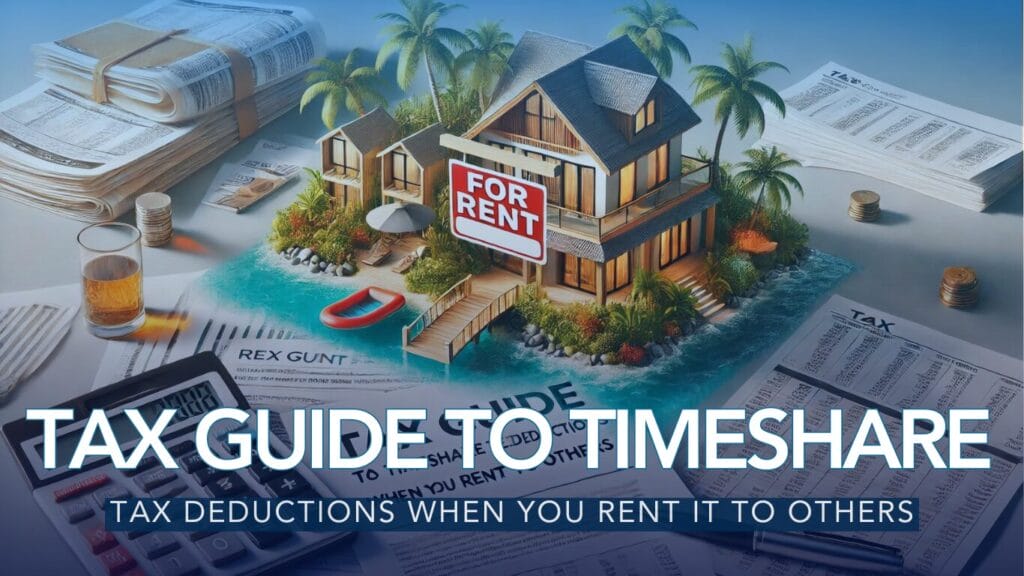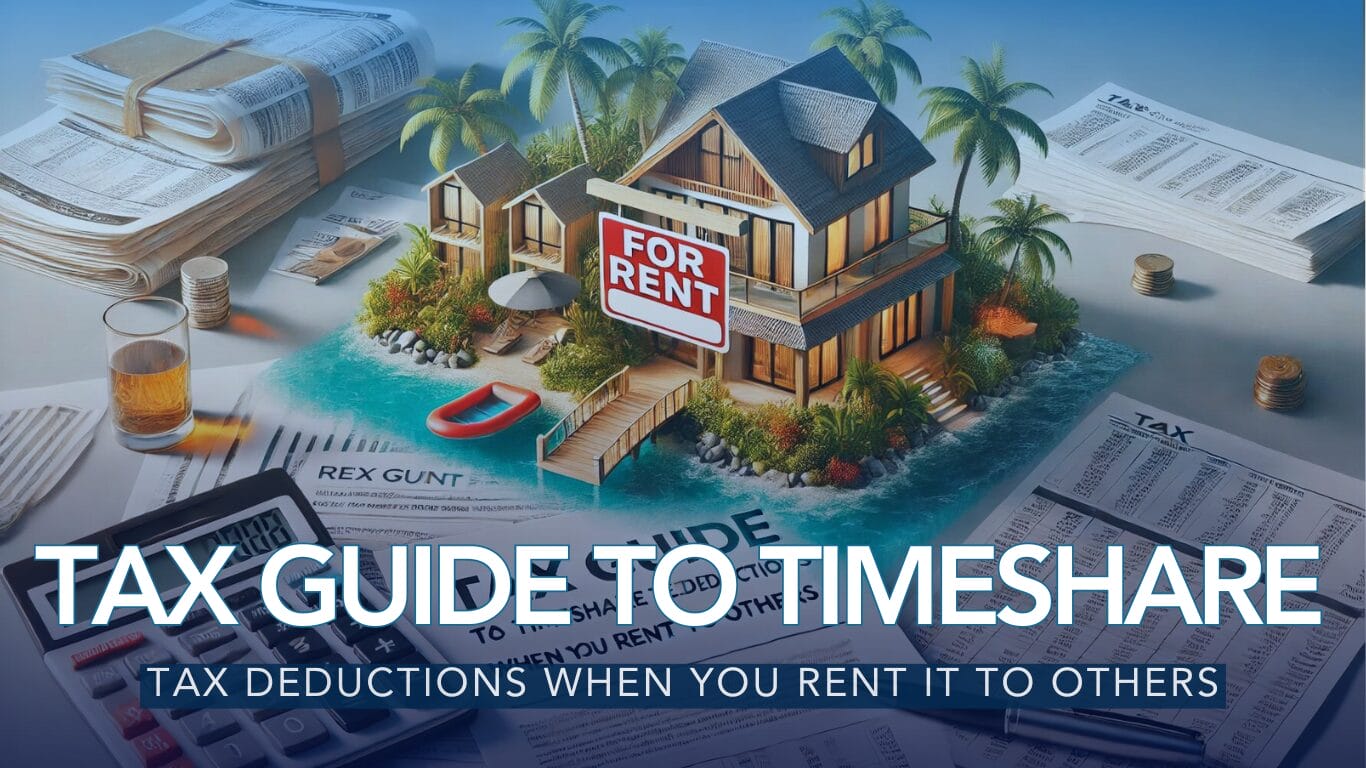
If you own a timeshare, understanding how to maximize tax deductions can be challenging, especially when you rent it out. The tax implications of owning a timeshare vary based on how it is used: for personal use, rental purposes, or a mix of both. Let’s explore the nuances of timeshare tax deductions, mortgage interest, co-ownership issues, and rental complications.
Deducting Mortgage Interest on the Timeshare
The IRS allows you to deduct mortgage interest on your primary home and one additional home, such as a timeshare, as long as it qualifies as a residence. For a timeshare to qualify as a second home, it must meet one of these conditions:
- You do not rent the timeshare during the year.
- If you rent it, your personal use exceeds 14 days or 10% of the total rental days, whichever is greater.
Example
Suppose you own a timeshare but do not rent or list it for rent throughout the year. In that case, you can designate it as your second home and deduct the interest on your mortgage. If you use the timeshare for both business and personal purposes, you can deduct the business portion as an expense and treat the personal portion for the mortgage interest deduction.
Co-Owners, Mortgage Interest, and Timeshare Not Rented
When a timeshare is not rented, the IRS ignores co-owner interests, allowing you to declare it as your second home. If rented, however, the mortgage interest deduction requires adherence to vacation home rules. Exclude co-owners’ activities from calculations and determine personal use versus rental use to qualify for mortgage interest deductions.
Example
Owning a week of a timeshare with 51 co-owners who hold the remaining weeks, you may designate it as a second home if you have no rental use. Once rented, you must calculate personal and rental use days without including co-owners.
Timeshare as Rental Property
When timeshares are rented, they are subject to vacation home rules, requiring the inclusion of co-owners’ usage in calculations. If personal use by you and your co-owners exceeds 14 days or 10% of rental days, the IRS limits deductions to gross rental income, disallowing losses.
Passive Loss Rules
Passive loss rules apply to rental properties, disallowing deductions of passive activity losses in the current year. These losses are carried forward until offset by passive income or total disposition of the timeshare . A notable exception is a $25,000 passive loss deduction break for individuals owning 10% or more of real estate rental activities and actively participating .
Seven-Day Hotel Rule
The seven-day rule often reclassifies timeshares from rental to business activity, which impacts qualification for the $25,000 break and invokes passive loss rules for material participation.
Best Strategies for Timeshare Tax Benefits
- Avoid Renting: To simplify taxes, use the timeshare for business or personal purposes to bypass vacation home rules.
- Consider Renting for Income: While rental income helps offset costs, be prepared for complex tax implications. Renting may not offer tax shelter benefits but improves cash flow.
If Rented, Know Co-Owner Use
Ensure awareness of co-owner use, as personal use is counted for co-owner activities. Lack of evidence on co-owner use can lead to disallowed deductions, as seen in Efrem Fudim’s case.
Personal Use and Rental by Relatives
Personal use extends beyond direct use, including times when relatives use or rent the timeshare. Rental to relatives at fair market value is still considered personal use for qualification purposes . Days rented to relatives count as personal use when determining residence status and as rental days for expense allocation.
Charitable Use and Swaps
Charitable use and timeshare swaps count as personal use . In rental pools, choose between actual use and averaging for use determination.
Conclusion
Timeshares offer potential tax benefits and challenges. Optimal use depends on your priorities: business use offers deductions, personal use provides mortgage interest deductions, while rentals complicate matters with minimal tax shelter. Consult a tax advisor to navigate these complexities and maximize tax benefits.









